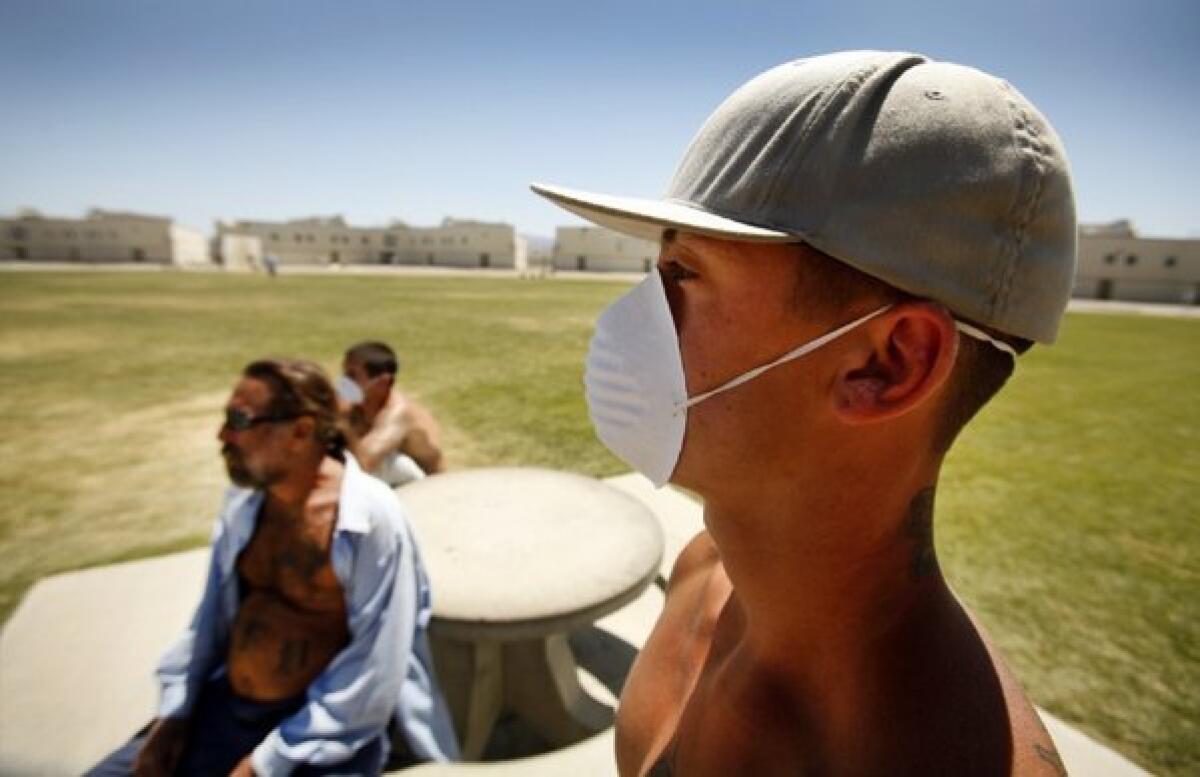Skin tests identify inmates for valley fever-stricken prisons

- Share via
Reporting from Sacramento — Skin tests conducted by California prison officials this month show thousands of inmates have been exposed to valley fever, making them candidates for placement at two prisons stricken by the sometimes deadly fungus.
Officials with the court-appointed medical receiver’s office said Thursday that as a result of the massive $5-million screening conducted two weeks ago -- more than 36,000 prisoners consented to the tests -- the state has a better grasp of who can safely be held at Pleasant Valley and Avenal state prisons.
The tests were recommended last year by the federal Centers for Disease Control and Prevention, which argued that identifying inmates already immune to valley fever would do more to save lives than the state’s policy of excluding African Americans and other higher-risk populations from prisons where the disease was prevalent.
The fungus exists in the soil throughout much of Central California and other western states. Most individuals develop only minor, cold-like symptoms when infected and then become immune, but in some individuals the fungus spreads throughout the body, killing its victim.
Joyce Hayhoe, a spokeswoman for the medical receiver’s office, said skin tests were offered to more than 94,500 inmates in mid-January. She said 36,600 agreed to be tested. Of those, Hayhoe said, more than 3,000 tested positive, suggesting they had previously been exposed to the fungus and therefore are unlikely to become ill from it.
The positive test makes them eligible to be housed at Avenal or Pleasant Valley, prisons that hold more than 8,000 inmates.
Among those who tested negative were 1,350 inmates already at Avenal and 815 inmates at Pleasant Valley. Hayhoe said they will have to be moved.
Women, inmates on death row and others who are not eligible for transfer to one of the valley fever-stricken prisons were not tested.
Lawyers representing inmates in won a 2013 court order requiring California to take steps to prevent the deaths.
The new test, approved by the U.S. Food and Drug Administration, became available for public use in July.
More to Read
Sign up for Essential California
The most important California stories and recommendations in your inbox every morning.
You may occasionally receive promotional content from the Los Angeles Times.











